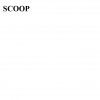Book writing and publishing
Have an idea of what to write about
Starting a book all starts with an idea of what you would like to write about. Writing comes in many forms, shapes and style, therefore you have to decide what kind of book you would like to write about. Start by thinking of what your personal interests or hobbies are, maybe even your occupation could help in deciding what kind of book you would like to write about. Remember that there are many different kinds of books that you could write about such as children's, fiction, non-fiction, how-to etc...
Once you have an idea of what to write about you should start jotting notes down on paper whenever you can or whenever ideas or little thoughts pop into your head. Always take notes down when ideas/thoughts about your book come into your mind, even if you think the ideas or thoughts seem like they wouldn't be good for your book, just write down those ideas because those ideas that you think are bad or not good might turn out to be the best parts of your book.
As you are keeping notes and writing down ideas you can also start to write or type your book layout. You might not have an idea of what the whole book will look like so do not stress about having a full layout, maybe it will be better for you to just write the layout for your first chapter and so forth. A layout doesn't have to be a full written chapter, a layout can just be a few brief ideas written down so you have an idea of what you would like to happen in a certain chapter, character names, characters' personalities, what events will take place in a certain chapter etc...
So basically having an idea, keeping notes and having some sort of layout/blueprint might be your best bet to starting your book.
Your manuscript
Your manuscript is basically your book before it is published, or your original copy of your work. If you wrote your book on the computer using Microsoft word or notepad or you used a typewriter to write your book or even if you wrote your book by hand, than you have a manuscript, your original copy of your work. Your manuscript is your book before you send it out to a publisher, editor etc...
It is said that an average manuscript page should be in 12 point Times Roman and should contain 23 lines type per page. This usually means that there would be 13 words per line or about 300 words per manuscript page.
It might be a good idea to make sure that you have a complete manuscript before you send it out to a publisher, editor or literary agent.
Publishers, literary agents, editors and self publishing
Now when you have completed your manuscript you will than need to know a a little about publishers, literary agents, editors and self publishing. You just need to have a basic idea of what they are and what they do, below are some basic examples of the four.
Publisher- A publisher is usually a company that will print and distributeand market your book. They will typically offer you a contract and a cash advance if they like your manuscript. Most authors send manuscripts to publishers but sometimes the big name publishing companies will only deal with a literary agent and will not accept unsolicited manuscripts. Basically a publishing company takes care of everything from editing your book to promoting it to distributing it and so forth. It is sometimes real hard to get your book published through a publisher but that is no reason to be discouraged because you can always self publish.
Literary agent- A literary agent is an agent who represents a writer and will usually deal with publishers on your behalf. A literary agent's job is to sell a manuscript on the writer's behalf. You should not pay a literary agent anything upfront because agents usually get paid a cut of what the publisher pays you. Remember that it i probably a good idea to hire an editor to look over your manuscript before you hand it over to a literary agent.
Editor- If you choose to self publish your book or decide to get an agent than it is a good idea to hire an editor. An editor will look over your manuscript and will suggest different words, phrases or grammar. An editor basically takes a manuscript and polishes it up so it can be printed. When you shop around for editors remember that it is not always about finding the least expensive editor but it is also about the quality of work that the editor can do.
Self publishing- Self publishing is when the author will self publish their work instead of going through a publishing company. There are also companies out there that allow authors to self publish there work through print on demand, which means that the company will let the author self publish their work through the company and when someone orders the author's book, the book will than be printed into book form and than mailed out to the customer.
Publishing/self publishing companies
Here is a list of some publishing/self publishing companies that you might be interested in. Simply look up the company/companies and send your manuscripts to them but keep in mind that some publishers prefer to go through a literary agent instead of dealing with unsolicited manuscripts. Also remember that when you self publish your book there may be some costs associated with it such as editing services and so forth.
Self publishing companies
Lulu
Booksurge
Xlibris
Cafepress
iUniverse
Wheatmark
Publishing companies
Whitmore publishing company
Random House
Kensington publishing corp.
Universal publishers
Dorchester publishing
Four walls eight windows
eBook
An eBook is a book that is published in electronic form. Many authors are choosing to have their books available in the form of an eBook because it is usually more cost efficient and it cuts out the middle man such as publishers and agents.
Remember to have your manuscript edited before you turn your work into an eBook.
If you choose to do an eBook than it is a good idea to look into buying eBook software. The prices vary but you should be able to find one for under $200. The software basically turns your manuscript into an electronic book.
After you have turned your manuscript into an eBook you than start selling your eBook and promote it as you see fit. Also keep in mind that sharing information on the Internet is easy so when you get the eBook software you might want to ask questions about how they prevent people from sharing your eBook, remember that you would like to make a little money from your work so it would not be fair if people bought your book and shared it with everyone they knew.






